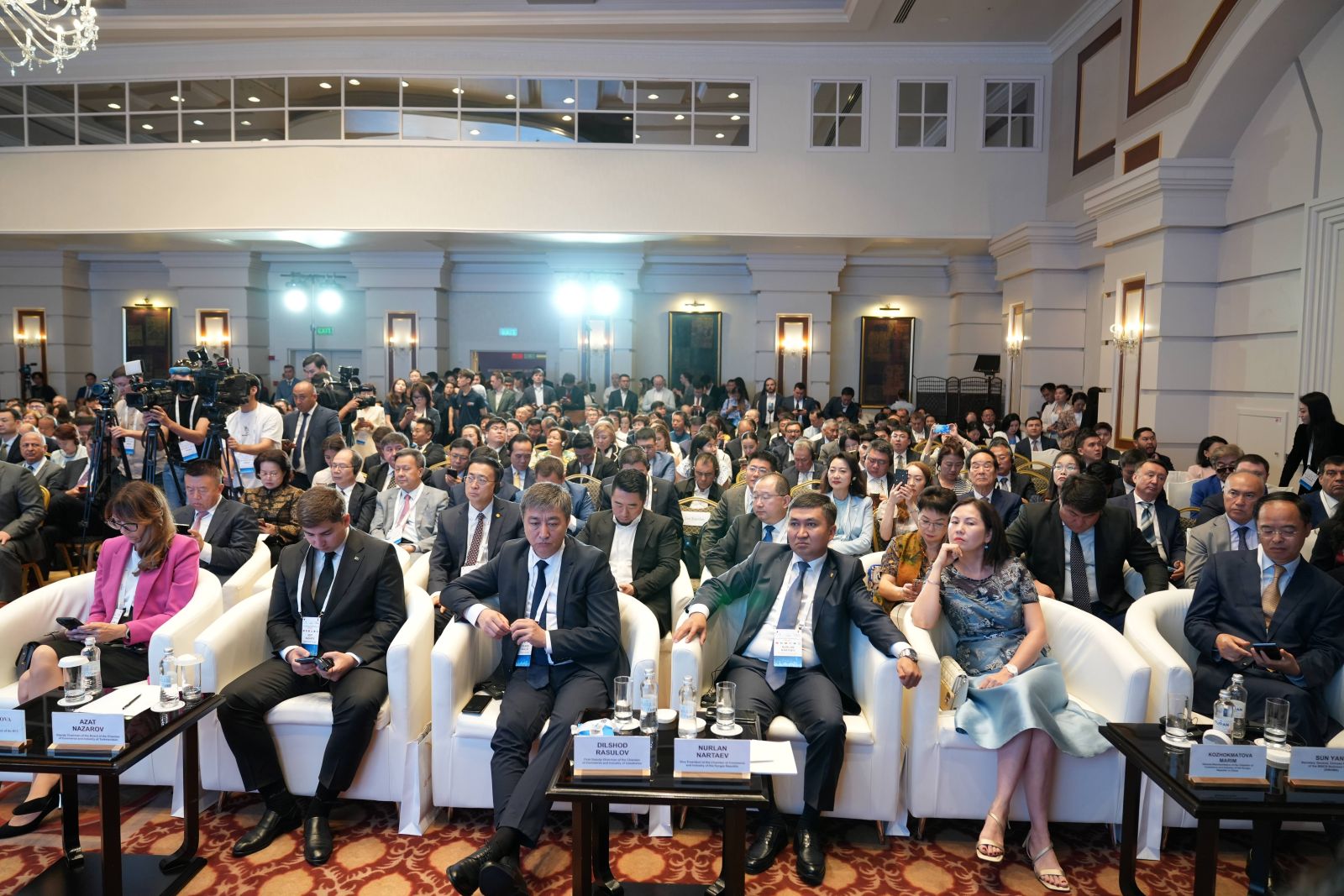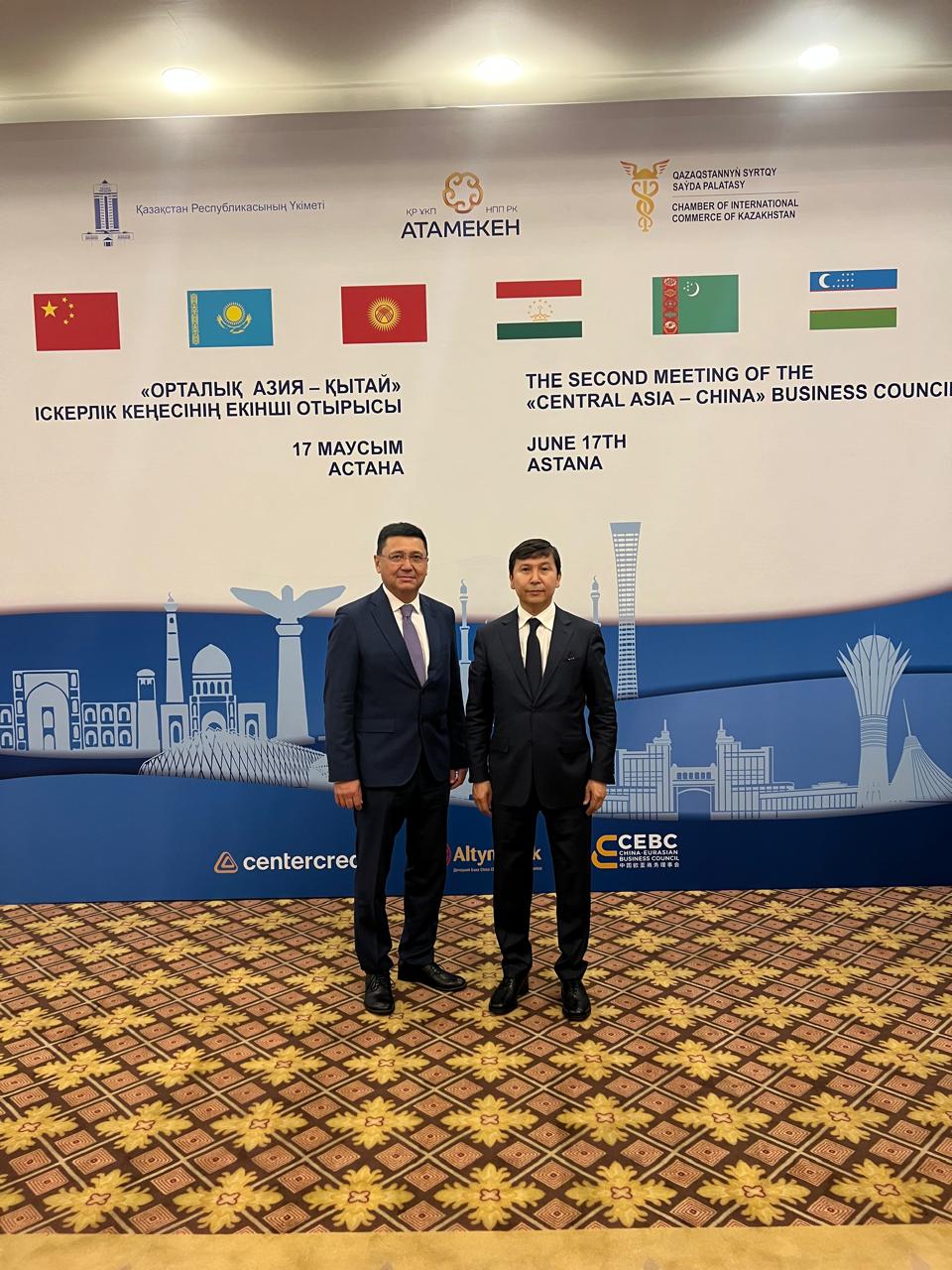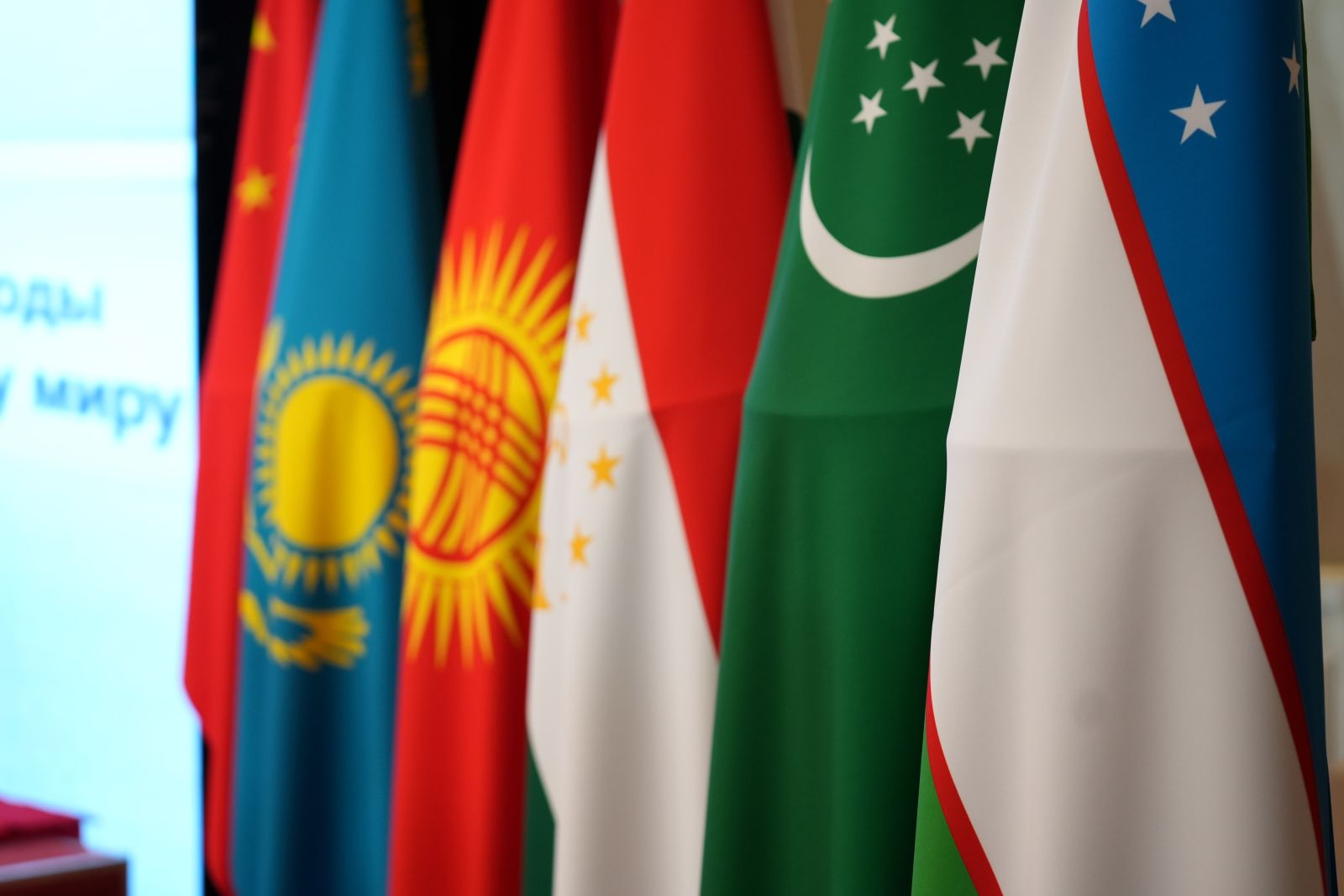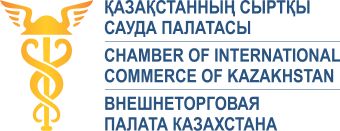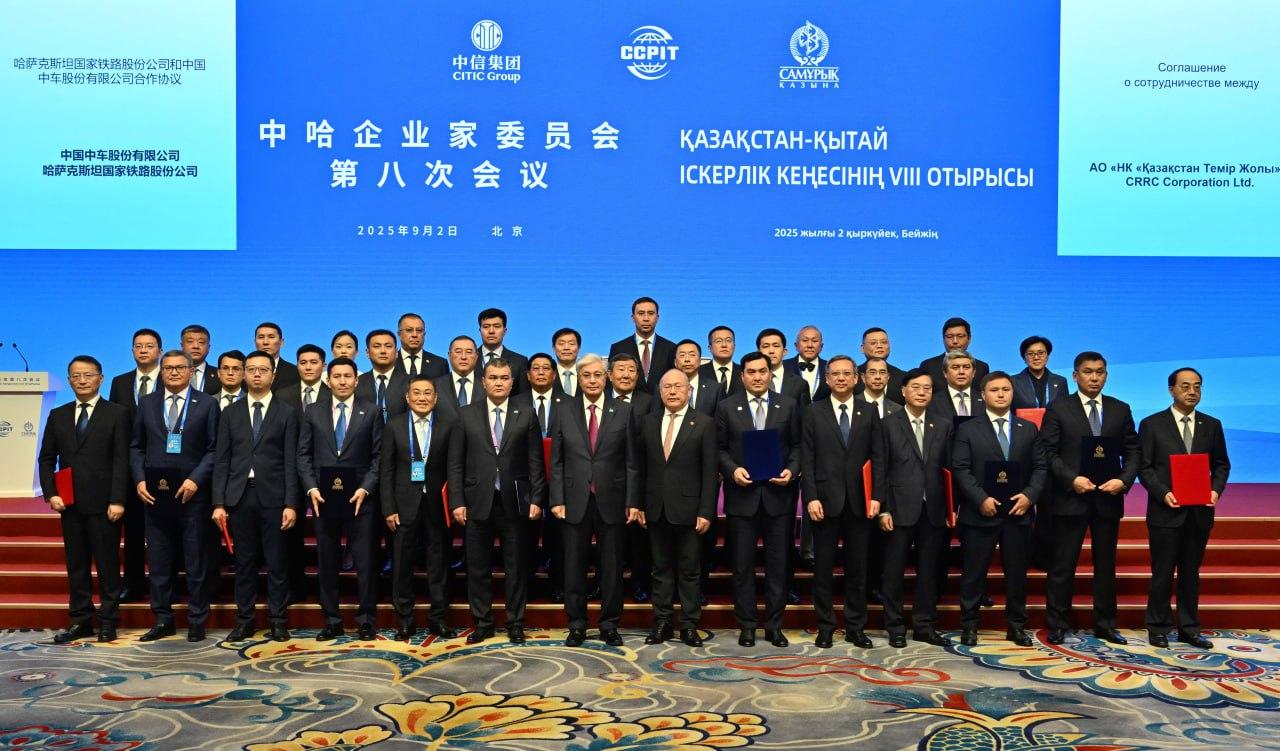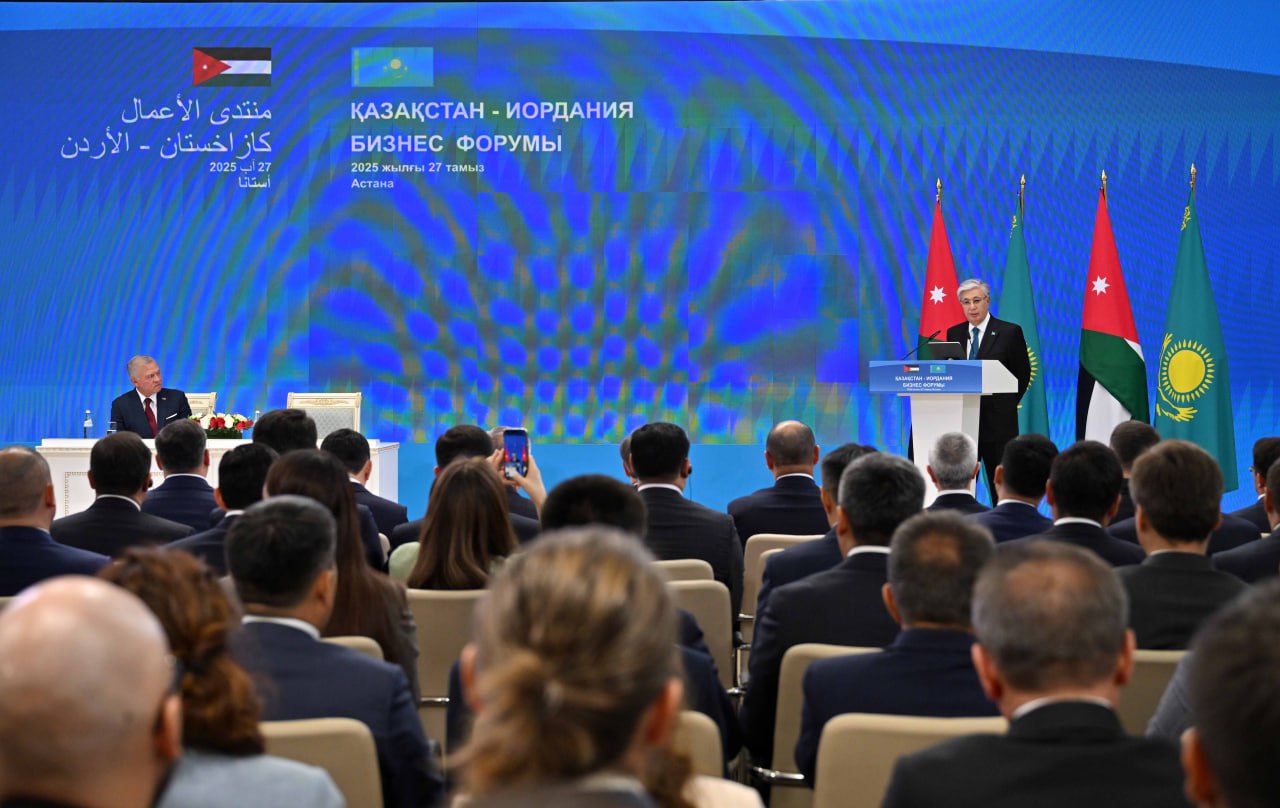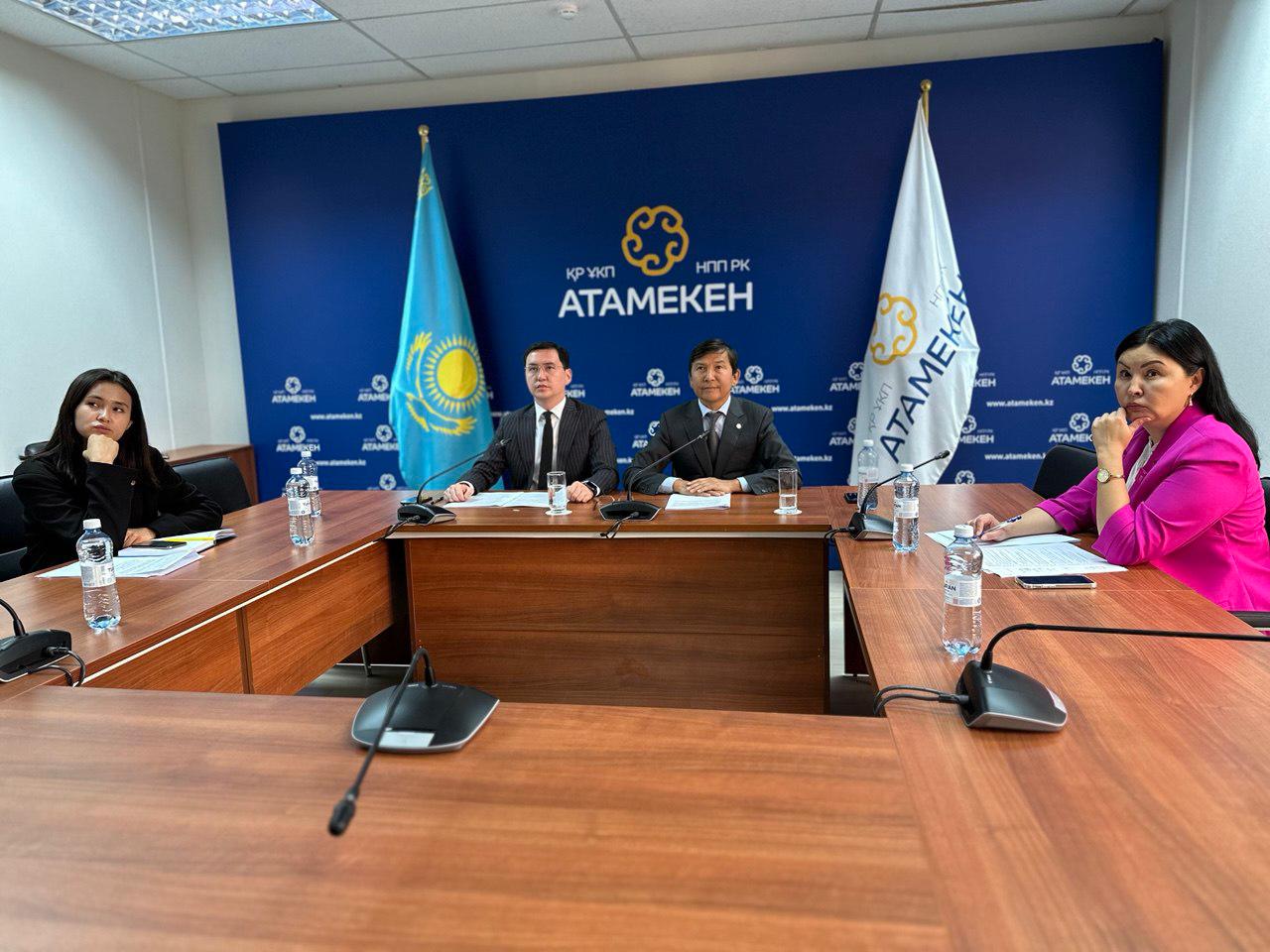

34 agreements worth $17bn: Central Asia-China Business Council held in Astana
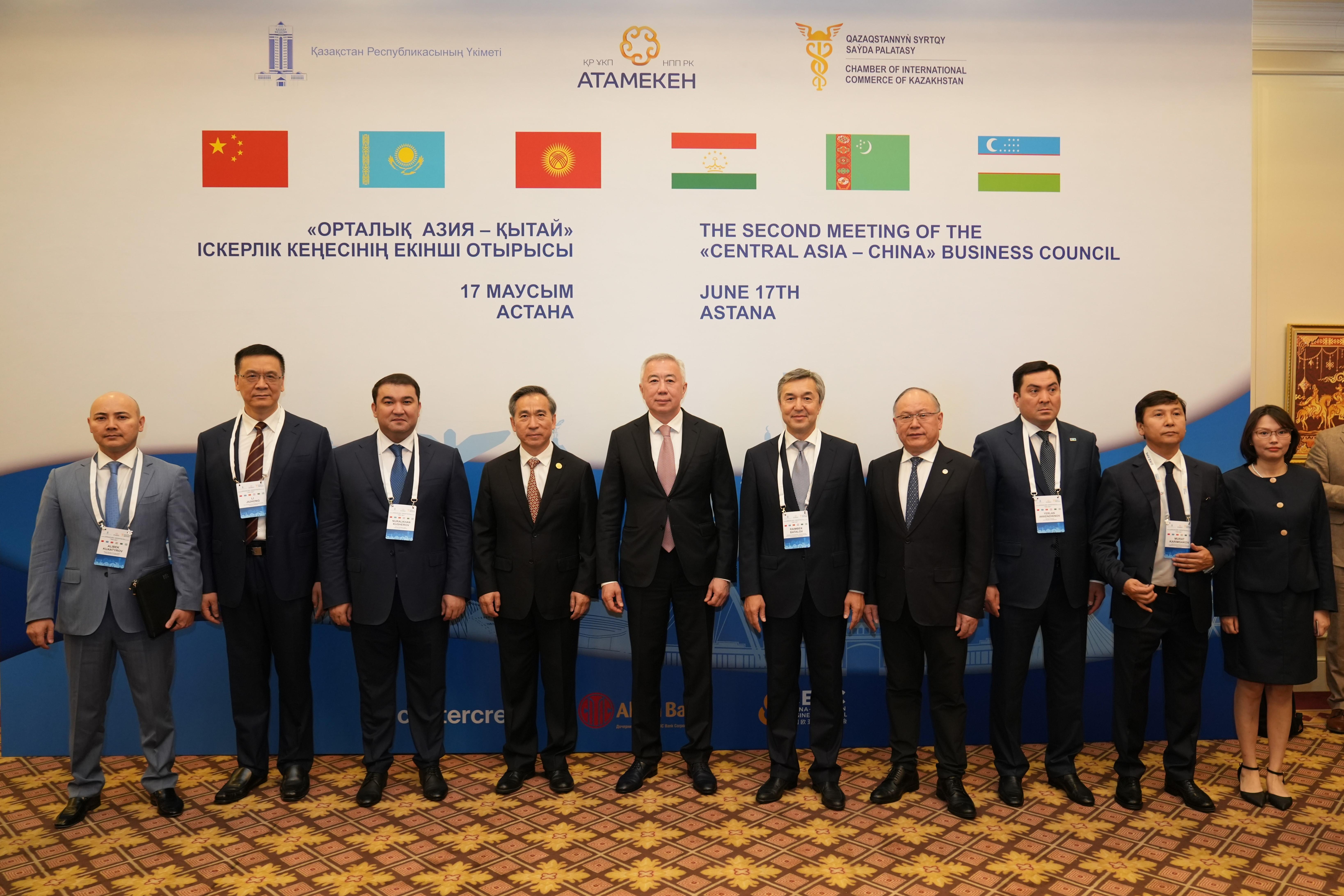
The second meeting of the Central Asia-China Business Council was held today in Astana, bringing together about 1,000 participants - representatives of business communities, government agencies and chambers of commerce and industry from China, Kazakhstan, Kyrgyzstan, Tajikistan, Turkmenistan and Uzbekistan. The event was organised by the National Chamber of Entrepreneurs of the Republic of Kazakhstan ‘Atameken’ and the Foreign Trade Chamber of Kazakhstan.
The event is held on the eve of the second summit ‘Central Asia - PRC’ with the participation of the leaders of Central Asian states and President of the People's Republic of China Xi Jinping.
The official opening ceremony of the plenary session was led by Deputy Prime Minister and Minister of National Economy Serik Zhumangarin, who emphasised the importance of the council as a platform for deepening economic ties between the countries of the region and the PRC in sectors such as trade, agriculture, e-commerce and transport logistics.
‘Combining the potential of the Central Asian states with the enormous capabilities of the PRC opens the way to taking the entire architecture of mutual interests and partnership to an unprecedented level,’ Zhumangarin emphasised.
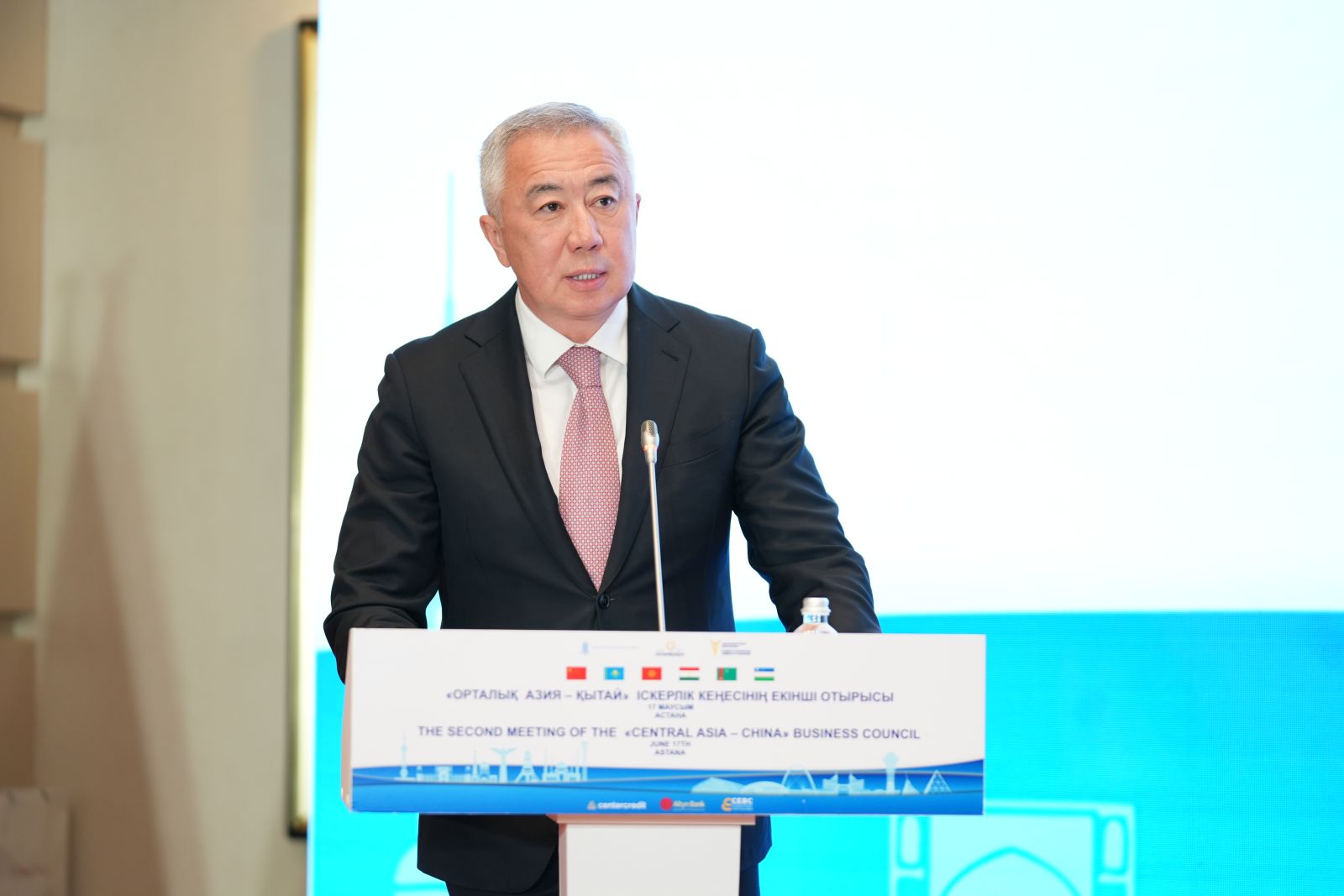
In his welcoming speech, Chairman of the Presidium of the National Chamber of Commerce ‘Atameken’ Raimbek Batalov called interaction with China an important strategic direction, allowing Central Asian countries to join forces for the sake of sustainable and balanced development. ‘Our task is to strengthen the functionality of the Business Council ’CA-China", to give real powers to formulate proposals, launch co-operation projects, as well as institutional co-ordination. In this regard, we propose to introduce mechanisms of permanent coordination between the national chambers of entrepreneurs of the countries. (...) We also see great potential in launching joint accelerator programmes, training tracks, grant schemes for the development of export competencies", - said the Chairman of the National Chamber.
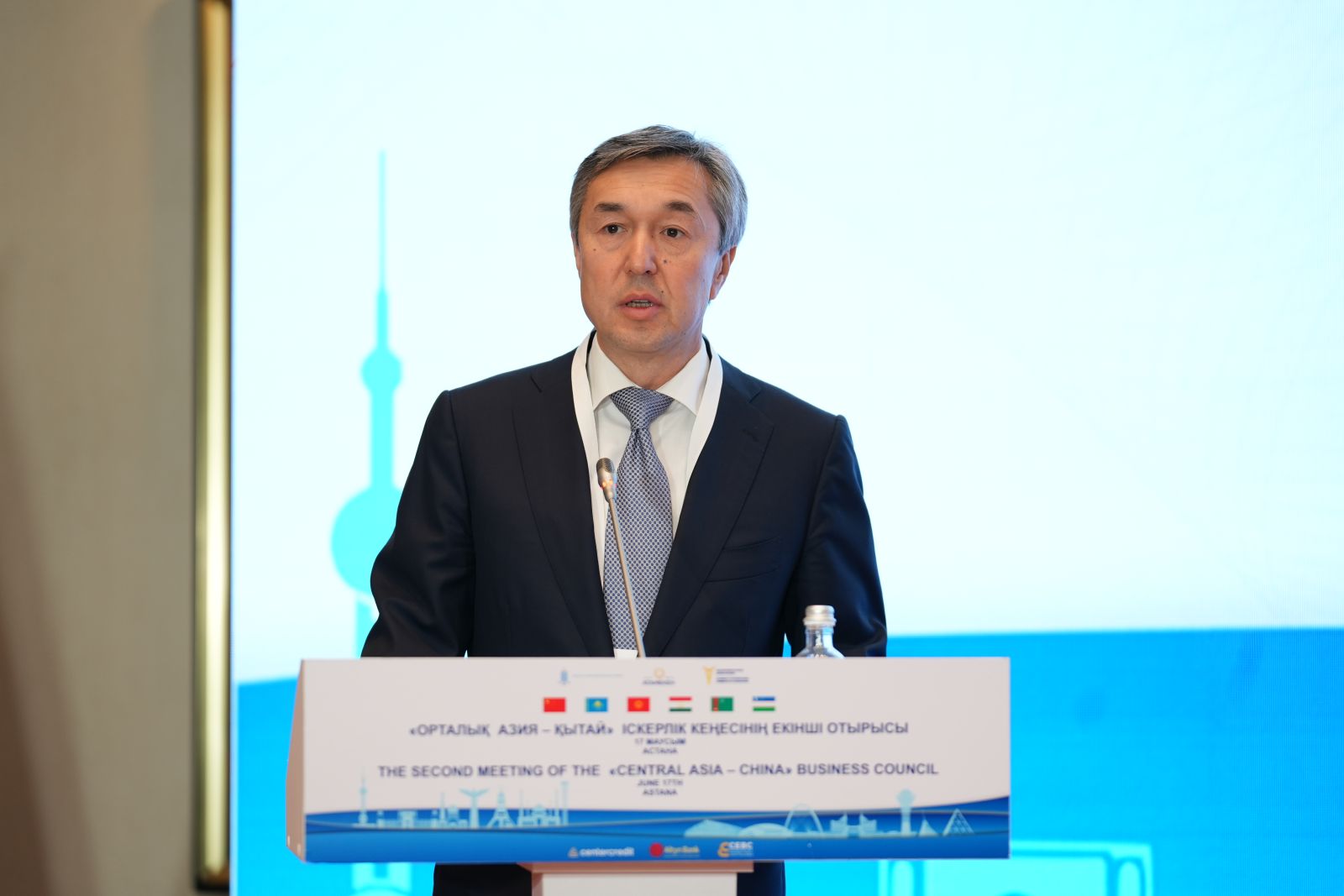
One of the key highlights of the meeting was digital integration of the six countries. Thus, the Kazakh side, represented by Raimbek Batalov, initiated the creation of the CA-China Interregional Trade Portal, which combines information on projects, legislation, logistics, and investment opportunities.
‘Such a portal may include business catalogues, transaction support services, trackers of investment initiatives,’ he stressed.
In turn, Chairman of the China Council for the Promotion of International Trade (CCPIT) Ren Hongbin recalled that it was in Central Asia that the One Belt, One Road initiative was first proposed. Over the years, China's partnership with the countries of the region within its framework has yielded fruitful results and brought tangible benefits to the peoples of all countries. He also noted the updated plan of interaction between the countries, defined at the second China-Central Asia summit with the participation of Chinese President Xi Jinping and the leaders of the five Central Asian states.
"Within the framework of the First China-Central Asia Summit, the China-Central Asia Business Council was established, which has become a specialized platform for dialogue between business circles within the framework of a multilateral mechanism. We intend to continue to develop this structure as an effective instrument for promoting economic rapprochement between our countries. In this regard, I would like to propose three areas for further co-operation: deepening trade ties, unlocking investment potential and building sustainable value chains," the Chinese delegate urged.
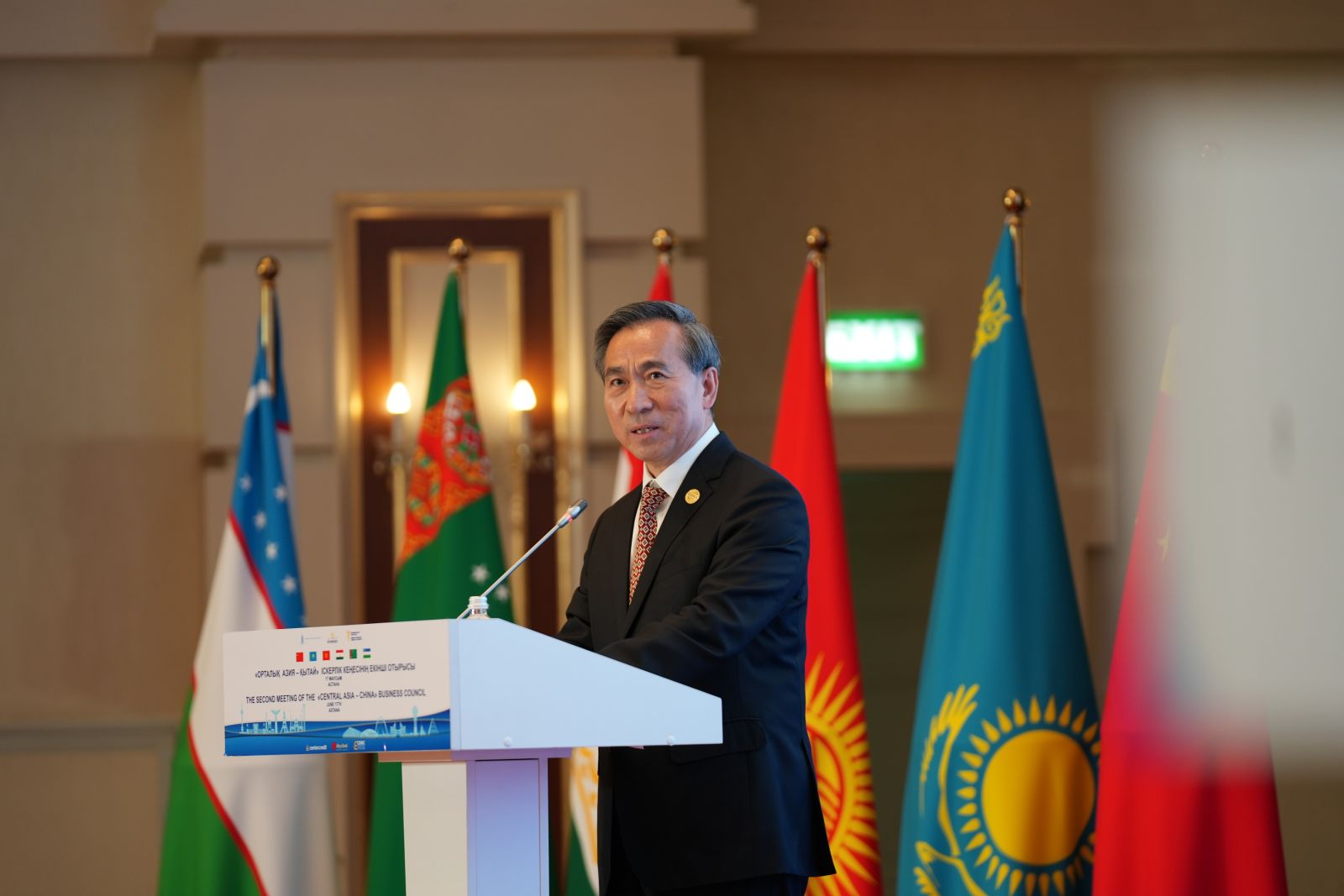
The plenary session highlighted the rapid growth of the Central Asian region's trade with China. In 2024, this figure reached $95bn, of which almost half is accounted for by Kazakhstan. At the same time, in the first quarter of 2025, the total volume of turnover with China and Central Asian countries reached about $29.3 billion, with imports from China increasing by 18%. In the structure of export supplies - oil, copper, uranium, metallurgy products and increasingly - processed agricultural products.
In addition, 34 documents (including memorandums, agreements and framework agreements) totalling over $17bn were signed during the meeting. The documents concerned cooperation in energy, construction, engineering, logistics, healthcare, agro-industry, education and digital technologies.
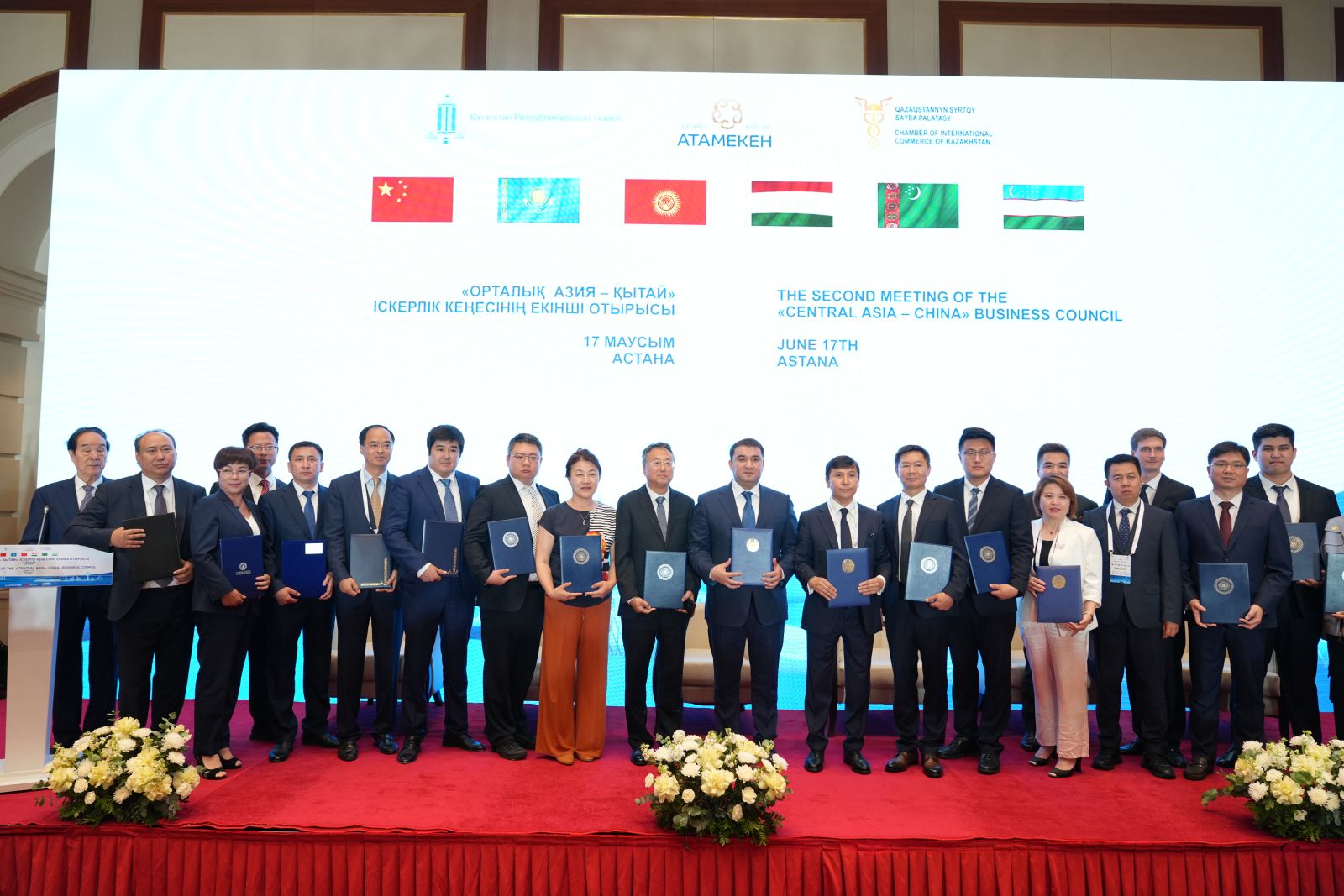
Among the signed agreements:
- Contract between Kazakh Soda LLP and China CAMC Engineering CO., LTD;
- Industrial park project between Kaghanat Onimderi LLP and Kazakhstan Jinjiang Co., Ltd.
- Memorandum between Samruk-Kazyna Construction JSC and China State Construction Engineering Corporation;
- Memorandum between the Ministry of Agriculture of the Republic of Kazakhstan and CITIC Construction;
- Agreement between KazMunayGas and CITIC Group;
- A number of agreements between Kazakhstan's universities and leading Chinese scientific institutions, including Nazarbayev University and Shanghai University of Chinese Medicine;
- Establishment of the China-Central Asia International Trade Platform together with IFCA.
"The holding of the Central Asia-China Business Council is of great importance for strengthening business ties between our countries. More than 30 strategically important documents were signed today, including memoranda of cooperation between the Foreign Trade Chamber of Kazakhstan and such leading Chinese organisations as China Energy International Group Co. and China Overseas Development Association. I am confident that these agreements will serve as a solid basis for the implementation of joint projects and deepening of economic partnership," said Murat Karimsakov, Chairman of the Board of the Chamber of International Commerce of Kazakhstan.
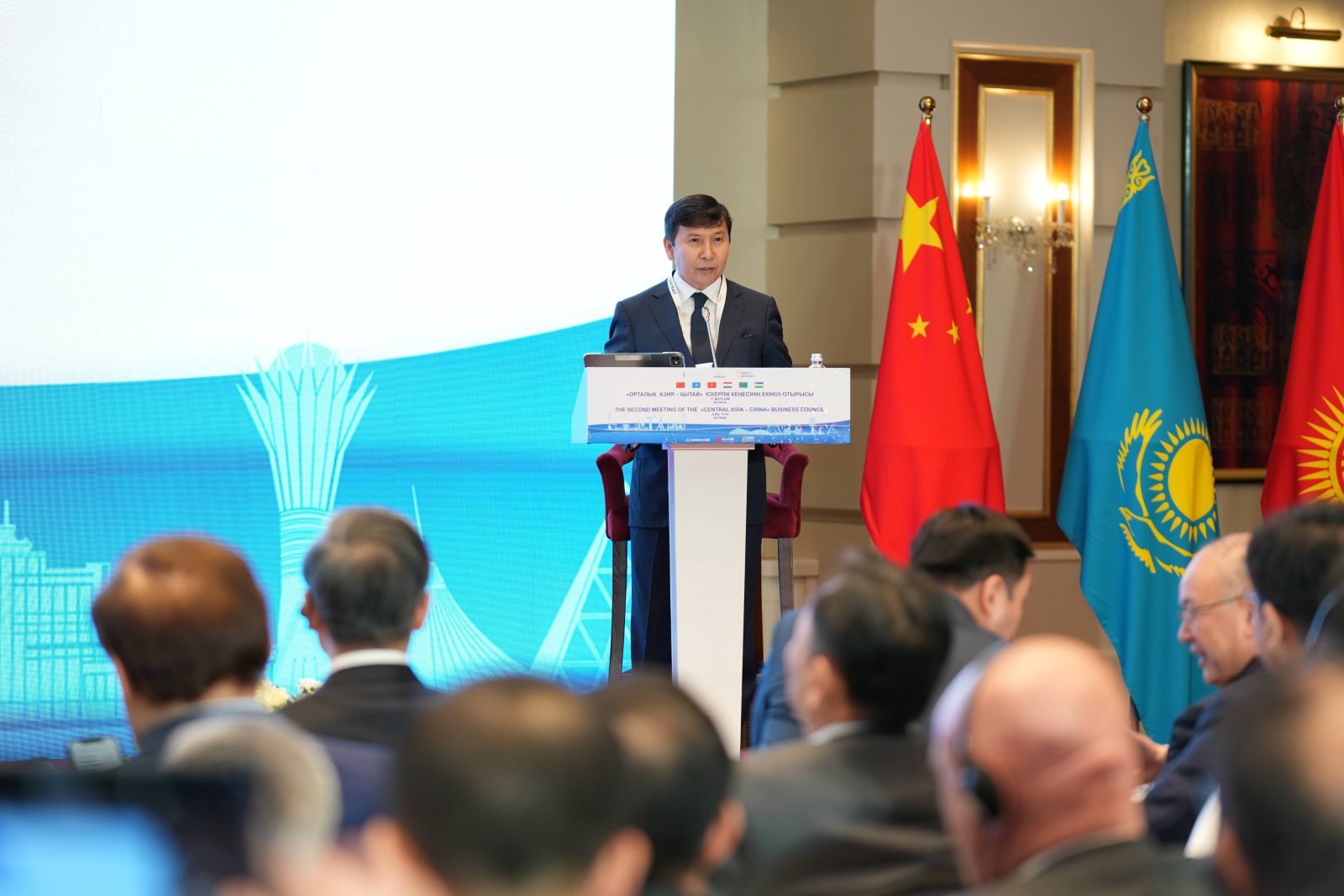
The forum programme included two key panel sessions:
- ‘Development of green energy’, where the issues of technology transfer in the field of RES, partnership projects for the construction of solar and wind power plants, as well as the prospects of ‘green’ transition in Central Asia were discussed.
- ‘Localisation and technology transfer: how to build digital sovereignty in Central Asia with the help of Chinese IT experience’. Experts from the countries of the region and China discussed the development of digital infrastructure, startup ecosystems, AI and cross-border platforms.
A separate block included a presentation of Shaanxi Province, where the region's tourism, industrial and agricultural opportunities were demonstrated. The presentations were made by representatives of the provincial government, leading corporations and research centres.
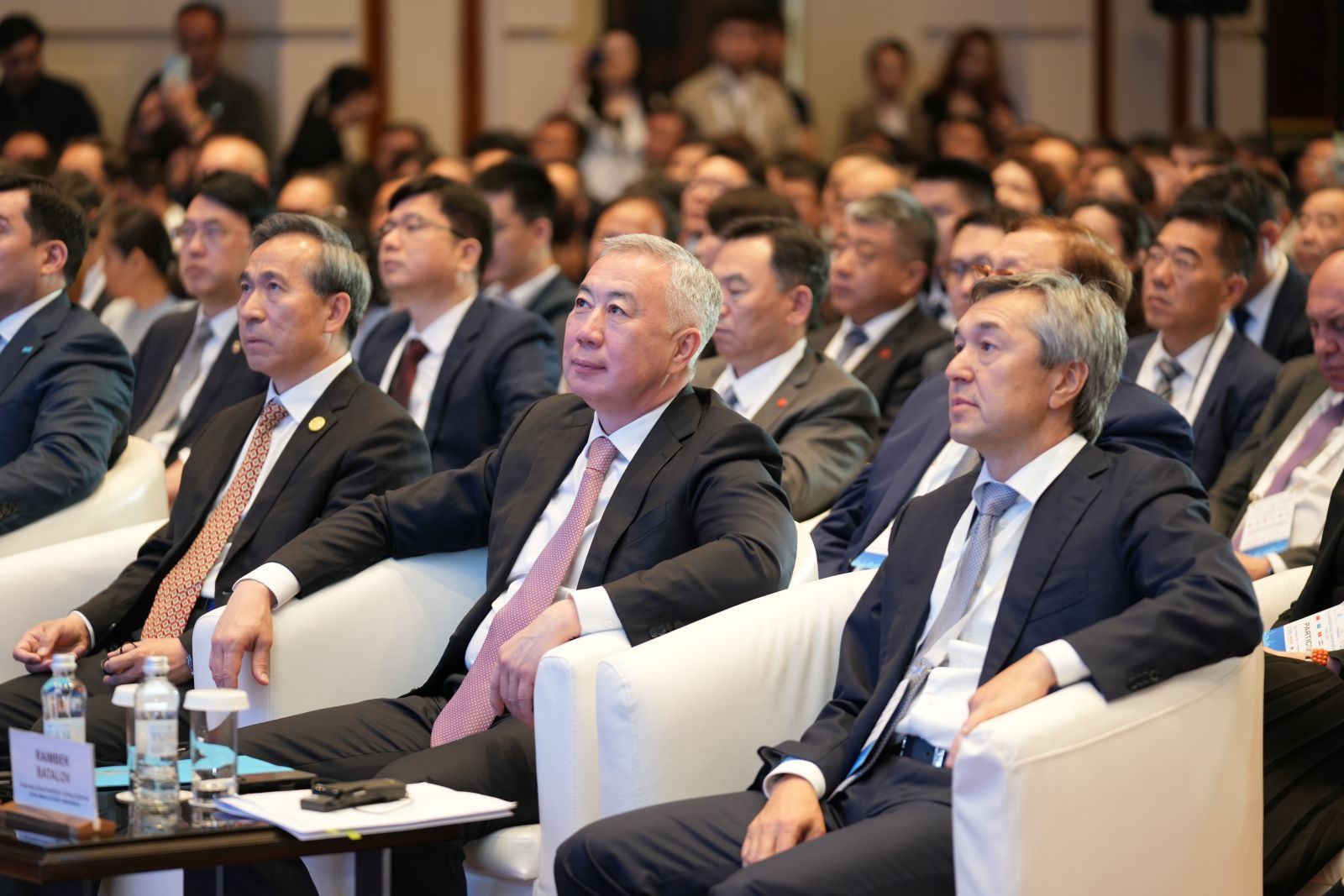
In addition, the forum included B2B meetings, as well as a C5+1 investment roundtable dedicated to interaction in agriculture, transport, industry and digital solutions.
Heads of Central Asian Chambers of Commerce and Industry also spoke at the meeting, emphasising the importance of institutional coordination, SME support, harmonisation of standards and promotion of regional initiatives.
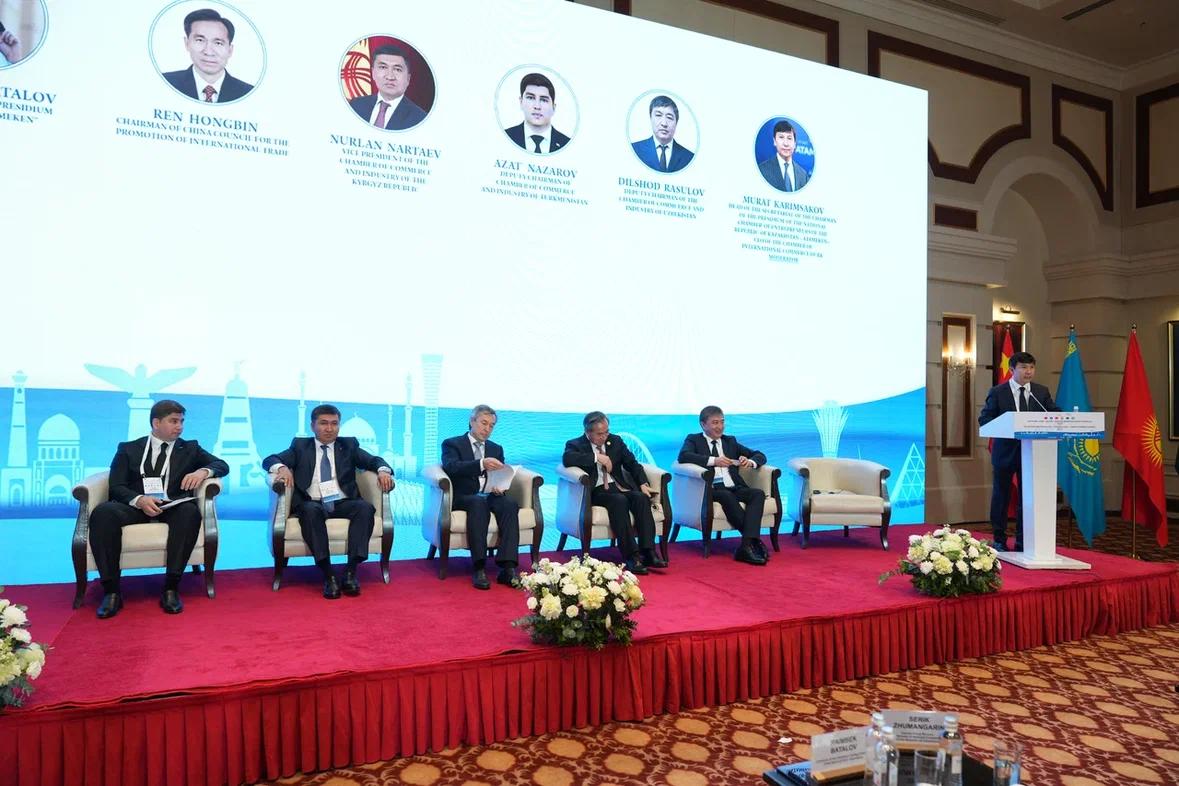
The National Chamber of Entrepreneurs of the Republic of Kazakhstan ‘Atameken’ expressed its readiness to continue active assistance in expanding bilateral and multilateral partnership, institutional support of investment projects and development of business ties in Central Asia and China.
